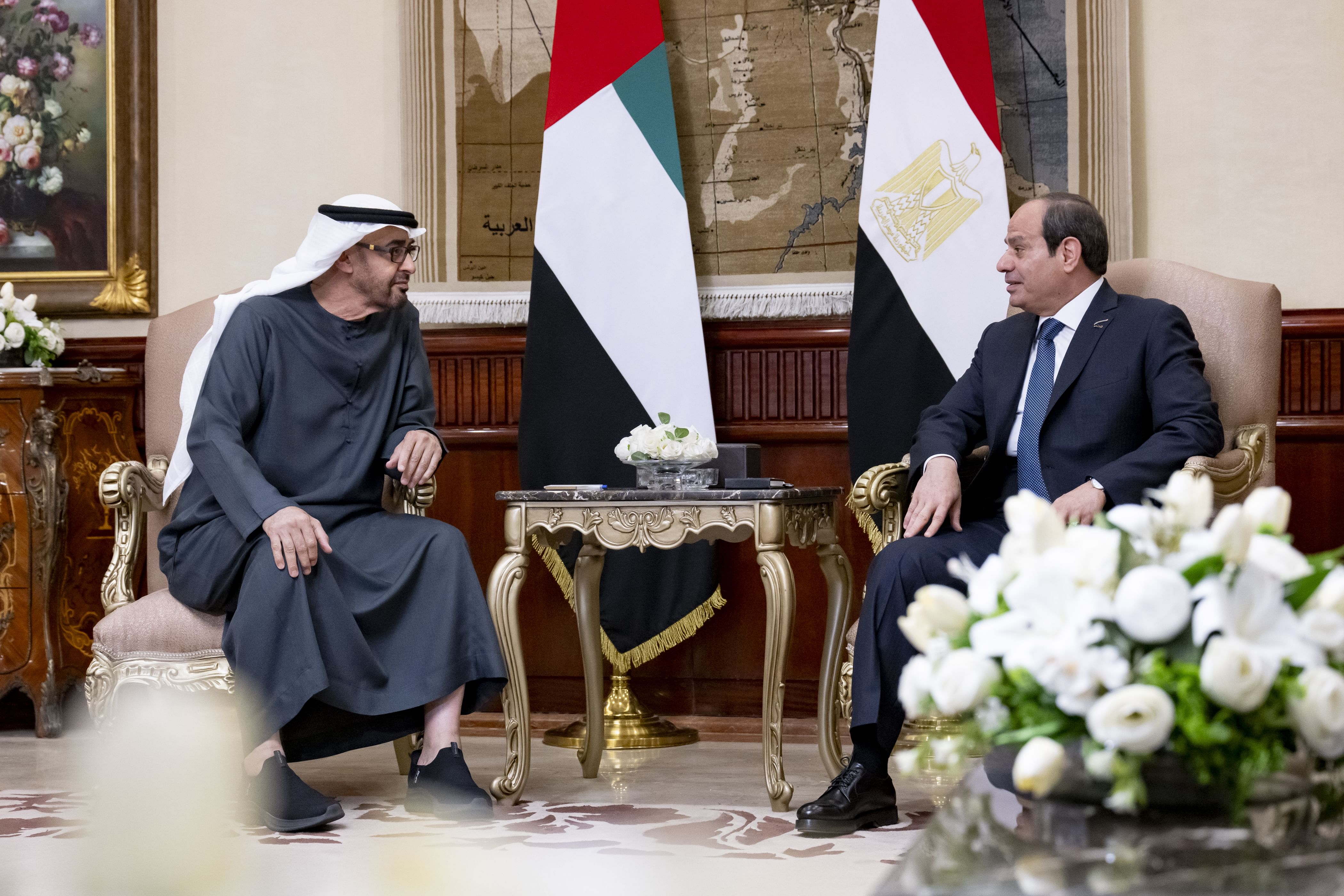Cairo, Egypt— UAE’s President Sheikh Mohamed bin Zayed Al Nahyan and his counterpart from Egypt Abdel Fattah El-Sisi met in Cairo to discuss the close bonds between the two countries and ways to expand them further.
The two leaders explored opportunities for further collaboration within the framework of the strategic partnership that unites the two countries in the economic, development, and political fields. During their meeting, El-Sisi reviewed a number of regional and international issues of mutual interest, including the latest developments in the Middle East.
Foremost among these are the ongoing efforts to address the humanitarian situation in the Gaza Strip and alleviate the suffering of its people, by ensuring the urgent, safe, and unimpeded delivery of aid, and through intensified efforts to achieve a lasting ceasefire.
Both sides emphasised the need for determined international action to support the political process and promote a comprehensive, just, and lasting peace based on the two-state solution, as a way to safeguard regional security and stability.
Sheikh Mohamed and President El-Sisi reaffirmed the depth of relations between the UAE and Egypt, which are characterised by strong ties and mutual respect, alongside a shared interest in further enhancing these relations to meet the mutual aspirations of both countries and their people.
The two leaders also expressed their keenness to maintain ongoing consultation and coordination between the UAE and Egypt on all matters serving their common interests and contributing to improved stability, security, and peace, which are considered essential for achieving development and prosperity throughout the region.

